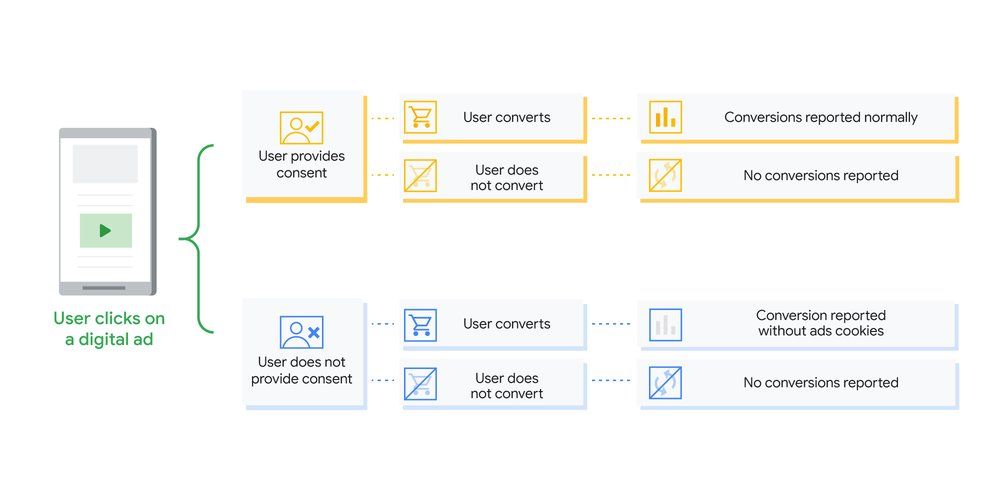
Google yesterday announced the launch of Consent Mode on Google Tag Manager, on the global site tags (Ads, CM, DV360, SA360), and on Google Analytics. Google says Consent Mode helps advertisers measuring conversions while reflecting users’ consent choices for ads cookies.
Consent Mode is a beta, available to a limited number of advertisers that operate in Europe.
Consent Mode is a new tag setting, “ad_storage” or “analytics_storage” for GA, which controls cookie behavior for advertising purposes, including conversion measurement. If a user does not provide consent for ads cookies, Google tags will not use cookies for advertising purposes.
Scott Herman, Product Manager at Google Tag Manager, wrote that with Consent Mode, Google tags will be able to determine whether or not permission has been given for the site to use cookies for advertising purposes for that user. If a user consents, conversion measurement reporting continues normally. If a user does not consent, the relevant Google tags will adjust accordingly and not use ads cookies, instead measuring conversions at a more aggregate level.
According to Google, with Consent Mode, campaigns running on Google Ads, Campaign Manager, Display & Video 360, and Search Ads 360 will be able to continue reporting conversions – while respecting users’ consent choices for ads cookies.
Google says advertisers will be able to retain conversion measurement in the campaign reporting, and will be able to continue attributing conversions to the right campaign and optimize the campaign bidding efficiently.
Consent Mode is available for advertisers that do not choose to use TCF v2.0. Consent Mode is available on the following Consent Management Platforms: Cookiebot, iubenda, OneTrust, Osano, and Sourcepoint.

